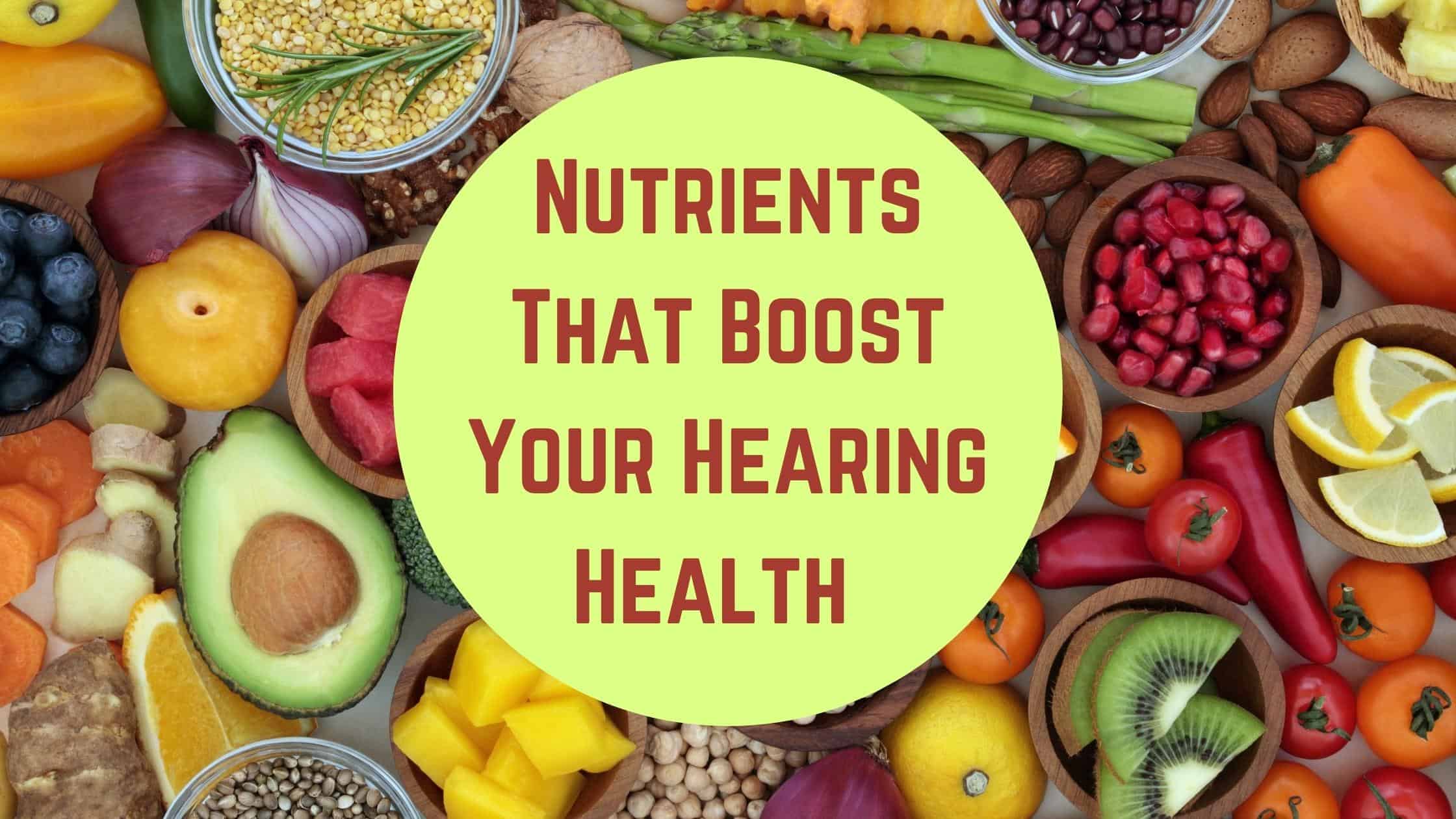A lot of us have heard the phrase “you are what you eat,” which means it’s important to eat foods that help us stay healthy and fit. A healthy diet means a healthier heart, a lower risk of diabetes, preventing hypertension, and even an overall better sense of being. Not only this but there is another often less realized perk to eating healthy – protecting and enhancing your hearing.
Our entire health is interconnected, and it is often overlooked how our communication and alertness of hearing help us to stay active and engaged into our golden years. What makes some foods more nutritious than others? It often comes down to the minerals and vitamins absorbed from the soil plants are grown in. When we eat these plants or animals which are these plants, we absorb essential nutrients for the functions of our body. If you are concerned about your hearing or just being conscientious about protecting your hearing now, here are a few nutrients and minerals to prioritize in the foods you may already love!
Vitamins A and E
Vitamins A and E are essential for boosting the immune system and helping your body heal. Of course, they also protect your hearing. A 2011 study examined the effects of different nutrients in the body and found that people with higher vitamin A levels had a 47% reduced risk of developing hearing loss. Vitamin E also reduced the risk of hearing loss by 14%. Where do you find these amazing vitamins? Common sources of vitamin A can be found in sweet potatoes, spinach, kale, beef, and eggs, while vitamin E can be found in your favorite seeds and nuts, avocados, and squash.
Vitamin B-9
Also known as folate, vitamin B-9 is essential in keeping your red blood cells oxygenated and healthy. Sensorineural hearing loss occurs when tiny cells in your ear become damaged, hindering the connection between your ears and your brain. These cells are susceptible to poor blood flow, especially when there is a depletion of folate in your diet. A 2004 study found that people with sensorineural hearing loss were more likely to have low vitamin B-9 levels. To help prevent sensorineural hearing loss, prioritize your leafy greens, broccoli, asparagus, beans, and nuts.
Vitamin B-12
Vitamin B-12 aids in the production of red blood cells and helps maintain blood flow. Again, a healthy blood flow can protect your ears from sensorineural hearing loss. Add extra helpings of B-12 to your diet with foods such as red meat, poultry, fish, dairy, and eggs.
Omega-3 fatty acids
Omega-3 fatty acids are one of the most important nutrients for your body’s health They are an integral part of cell membranes throughout the body, aid in the production of hormones that regulate blood clotting, contraction and relaxation of artery walls, and inflammation. A 2010 study titled Consumption of omega-3 fatty acids and fish and risk of age-related hearing loss examined the role of omega-3s and your ears and found that those with high levels of these fatty acids were 42% less likely to develop age-related hearing loss. Truly any food containing omega-3 fatty acids is a superfood, find
omega-3 fatty acids in sardines, other fish, beef, eggs, and nuts.
Potassium
Potassium is a mineral responsible for regulating fluid in the body, including the fluids in the inner ear. Potassium helps fight high blood pressure and water retention as well. Make sure to take care of your ears by eating lots of fruits and veggies full of potassium such as bananas, grapefruit, oranges, cucumbers, leafy greens, and potatoes.
Magnesium
This important mineral is especially helpful in fighting against noise-induced hearing loss. Often sounds are so loud that they cause vibrations in the inner ear severe enough to cause lasting irreversible damage. However, a recent study found that when taken in combination with vitamin C, magnesium can create more protection in your inner ear against loud noise. Make sure you are getting plenty of magnesium by eating lots of legumes, nuts, seeds, beans, whole grains, and dairy.
Prioritizing Your Hearing Health
Hearing is an important aspect of your health and it’s never too late to address it. If you suspect you do have hearing loss, it’s a good idea to schedule a hearing test now. In combination with a healthy diet, we can help you stay healthy for years to come.

